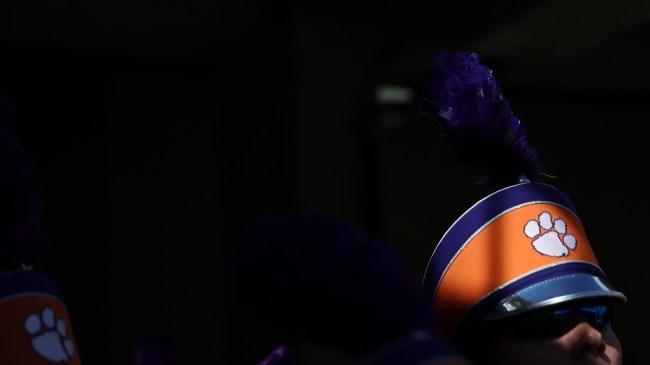
Getty Image
The Clemson board of trustees approved a number of athletic related initiatives on Thursday, many of which revolved around the futures of its coaches.
The Tigers granted extensions to the likes of head basketball coach Brad Brownell and baseball coach Erik Bakich, among others, locking those leaders in for the foreseeable future.
Both were more than deserving of raises following appearances in the Super Regionals and Elite Eight, as was national championship winning soccer coach Mike Noonan.
There were a few interesting caveats within those re-worked deals, including an interesting country club snub for Brownell.
Erik Bakich and Mike Noonan both get country club memberships in their new Clemson contracts.
Bakich gets a sports membership at The Reserve. Noonan’s is for Greenville Country Club.
Brownell, apparently, doesn’t care for country clubs. Not in his deal.
Jon Blau, Post and Courier / X: @Jon_Blau
The most interesting approval of the day, however, had little to do with those coaches. Instead, it revolved around a few personal items the department plans to offload.
Clemson wants to sell its private airplanes.
Chapel Fowler of The State Newspaper dropped the news on Thursday afternoon.
Clemson athletics note: The board of trustees just approved for the university to enter an “aviation service agreement.” Gist of it: Clemson currently owns/operates two airplanes, but now wants to now sell those to a provider and use them thru said provider instead for efficiency
-Chapel Fowler / X: @chapelfowler
He later suggested that it could have something to do with the House settlement involving the NCAA.
More on that case from Joel Klatt of Fox Sports:
The settlement of this lawsuit will change the structure of how each university operates its NIL and collective operations. Currently, some universities will go out and raise somewhere between $5-6 million collectives while others will raise $18-20 million collectives. They raise that money from boosters on an annual basis, using that money to provide promises to student-athletes. Most of those athletes are football players, but there are other sports that get a share, and the boosters are essentially paying for play.
That wasn’t the model anyone liked and it was totally unsustainable. Now, we have a more sustainable model with money that schools will pay the players coming from a revenue share. It can be on the books of the university’s athletic department budget.
The settlement states that schools can now pay players directly through revenue sharing, as opposed to having to go through fundraising collectives.
Some speculate that Clemson is planning to sell its airplanes in order to free up some room on its books, though they still plan to use the planes through the provider that makes the purchase.
Doing so can allow for the provider, not the Tigers, to deal with things like maintenance and staffing, theoretically putting more money in the university’s pockets.
That could have a positive effect on the future NIL budget, which should make everyone on campus happy.